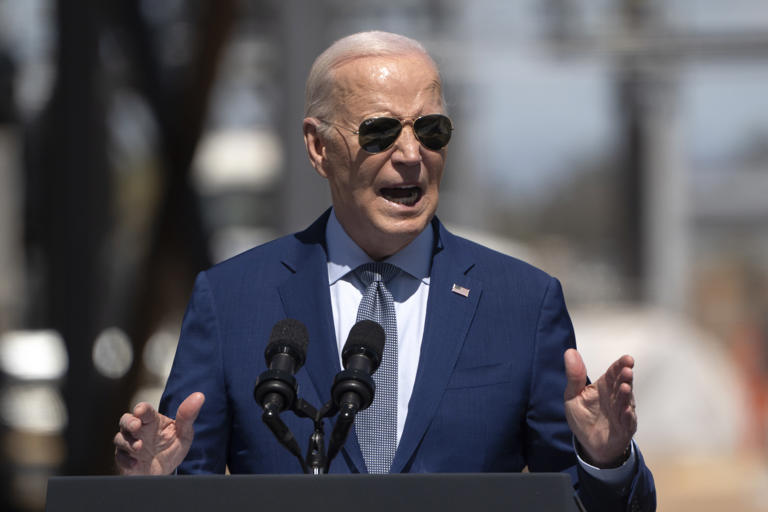According to Bloomberg reports, the United States is poised to implement measures aimed at restricting China’s semiconductor industry, intensifying the ongoing technological rivalry between Washington and Beijing. The Biden administration is reportedly considering blacklisting several Chinese semiconductor firms with ties to Huawei Technologies Co., following Huawei’s significant technological achievement last year. While Newsweek has not independently verified the Bloomberg report, the potential action underscores Washington’s efforts to curb China’s advancements in artificial intelligence and semiconductor development, particularly targeting a key Chinese flagship enterprise that has demonstrated progress despite existing sanctions.
Huawei’s introduction of a 7-nanometer (nm) processor last year, developed by Chinese chipmaker Semiconductor Manufacturing International Corporation (SMIC) for its Mate 60 Pro phone, has raised eyebrows in Washington. Speculation has arisen regarding whether SMIC violated U.S. export restrictions in producing the 7nm chip. Newsweek has reached out to China’s Embassy in Washington D.C. and Huawei for comment on the matter.
The successful deployment of SMIC’s chip by Huawei has surprised many observers in Washington and is perceived as a testament to the company’s resilience against sanctions. This technological achievement poses a direct challenge to U.S. efforts to limit the technological advancements of Chinese firms, particularly in critical sectors such as semiconductors. The U.S. move to restrict the semiconductor progress of China could potentially impact various Chinese entities associated with Huawei, either through acquisition or independent development, further escalating tensions in the ongoing technological competition between the two global powers.
According to statements made by U.S. Under Secretary of Commerce for Industry and Security Alan Estevez to Reuters on Thursday, there is a potential assessment underway to determine if Semiconductor Manufacturing International Corporation (SMIC) breached U.S. export regulations in producing the advanced chip.
Bloomberg reported that companies possibly facing blacklisting include chipmakers Qingdao Si’En, SwaySure, and Shenzhen Pensun Technology Co., also known as PST. Additionally, Biden administration officials are contemplating sanctions against ChangXin Memory Technologies Inc, China’s leading memory chipmaker. These potential measures stem from concerns that these companies have directly aided Huawei in advancing domestic semiconductor capabilities by acquiring restricted U.S. technology.
The Semiconductor Industry Association, based in Washington, identified these firms in a presentation as collaborators with Huawei, further deepening the scrutiny surrounding their activities.
Meanwhile, the Biden administration is bolstering the U.S. domestic semiconductor industry by investing in a new Intel Corporation plant in Arizona. President Biden announced an $8.5 billion grant for Intel as part of the CHIPS Act, aimed at increasing domestic semiconductor production. The CHIPS Act, coupled with the Science Act 2022, allocates $52 billion in government subsidies to address semiconductor shortages and reduce reliance on China and Taiwan. Geopolitical tensions, such as the Ukraine-Russia conflict, have underscored the importance of securing the chip supply chain.
During his visit to the Intel campus in Chandler, Arizona, President Biden expressed confidence in revitalizing the U.S. manufacturing sector and emphasized the country’s potential to lead the semiconductor industry once again.
In response to the Biden administration’s actions, China’s Ministry of Commerce criticized the perceived weaponization of export controls and subsidies to bolster the U.S. chip industry. The Ministry argued that such measures violate market principles and international trade rules, accusing the U.S. of distorting the global semiconductor industry chain and discriminating against Chinese companies.
